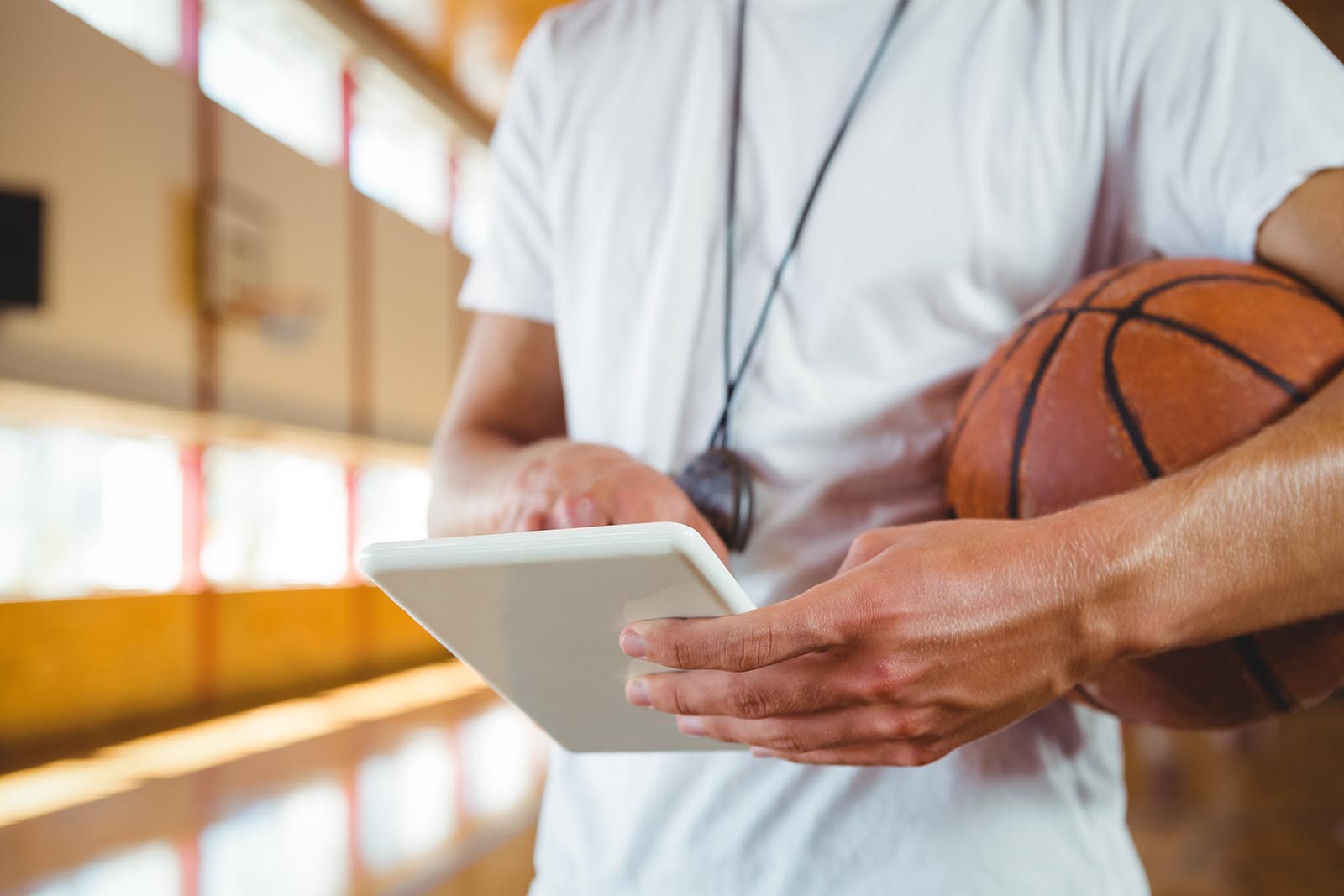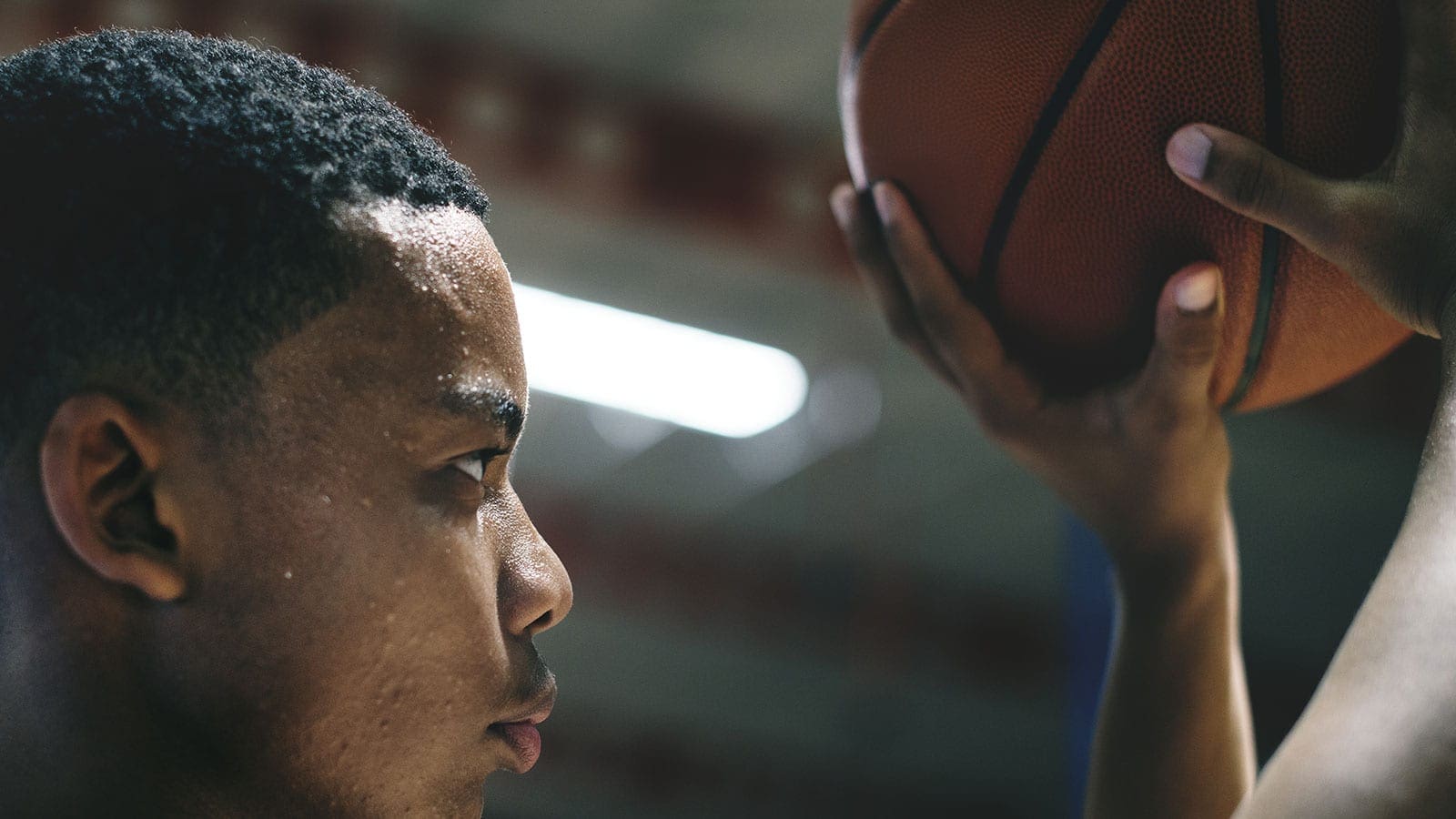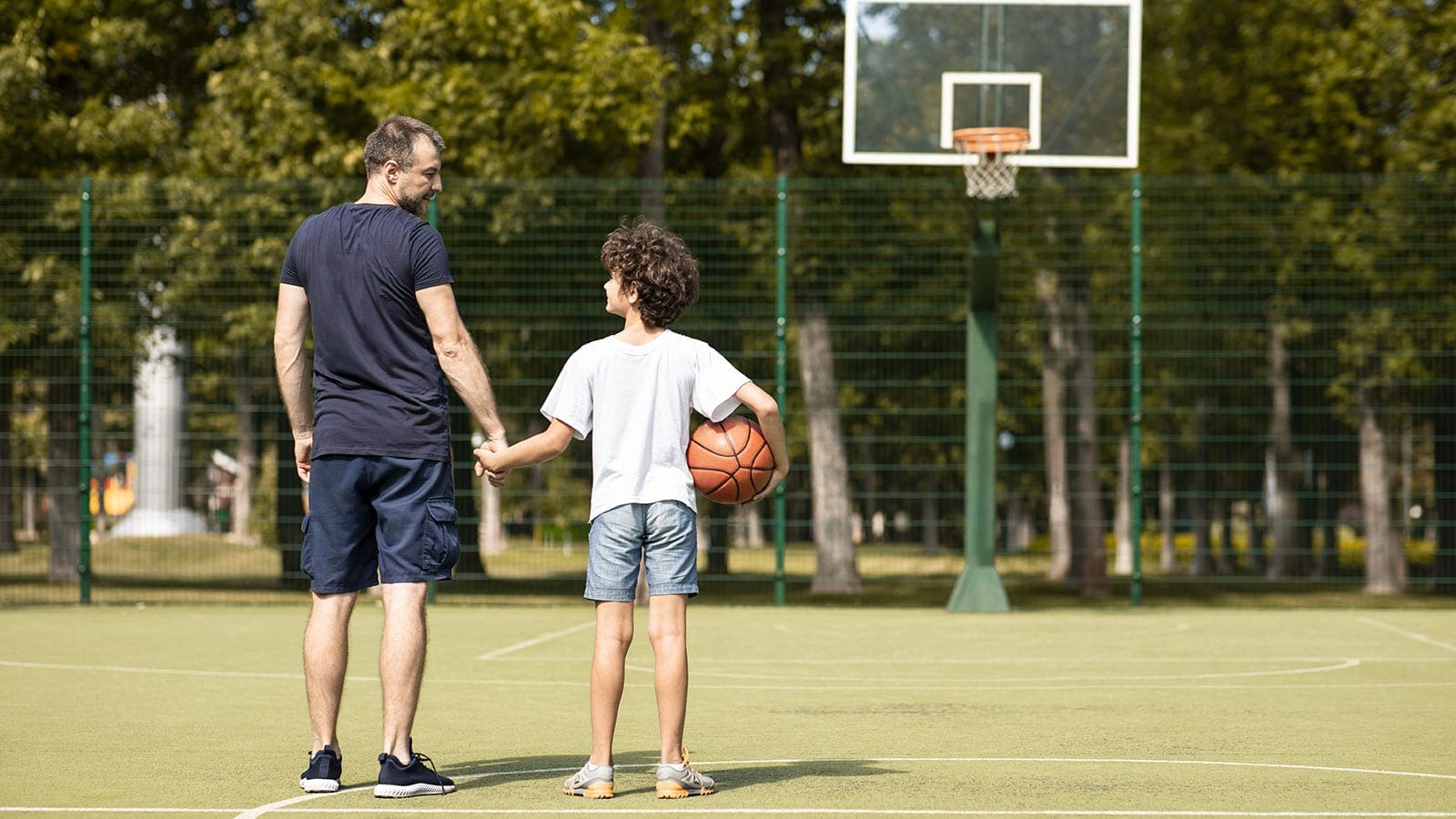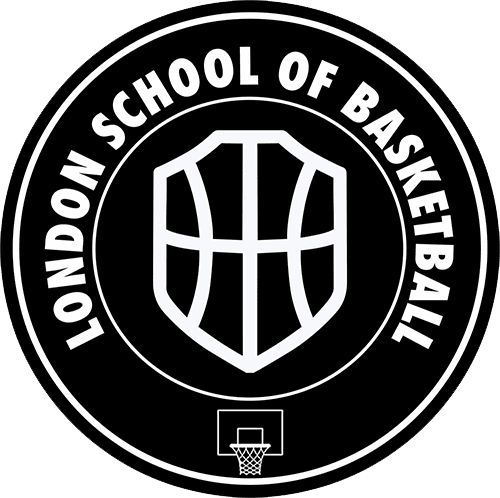Many coaches remain unsure about what coaching safely within the COVID-19 era currently means and what is or isn't allowed. We've grouped together the most commonly asked questions from all of the coaches from our clubs and programs to provide some guidance on what you should and shouldn't be doing, in line with Basketball England's RTP guidance.
If your question isn't answered below, please review the extensive information for coaches and clubs around COVID-19 on the Basketball England website, or get in touch so we can help answer your query: CONTACT US
Coronavirus Disease 2019 (COVID-19) is an ongoing worldwide pandemic caused by the Severe Acute Respiratory Syndrome Coronavirus 2 (SARSCOV-2).
This virus appears to be highly infectious and at present, we do not have an effective treatment for it. Most people (80%) who are infected have mild symptoms and some do not have any symptoms at all. Because this is a new virus, there is much we do not know about it. However, like other viral infections, we know that many individuals who are infected, are infectious for up to two days (48hours) before they have symptoms. This means it is easy to spread this disease before you are aware you have it.
While the majority of those who become symptomatic can be managed at home, 15-20% who contract the virus become unwell and may require hospitalisation. A small number (5%) require intensive care, some of whom require breathing support through ventilation. These patients are more likely to be male, older (over 60) and have underlying conditions such as cardiovascular disease, raised blood pressure, chronic lung disease or diabetes.
There is growing evidence individuals from Black, Asian & Minority Ethnic (BAME) communities appear to have higher rates of serious illness from COVID-19 (up to 1.9 times more likely to die from COVID-19 compared to white people). Given that a large proportion of the basketball family (58%) come from these communities, the guidance should be seen as especially important for these individuals.
The exact mortality rate associated with COVID-19 infection is unknown, but it may be as high as 1- 2% overall and is higher in vulnerable groups. COVID-19 will likely remain a potentially deadly virus until an effective vaccine is created, but vaccination is unlikely to be available for several months to years. Younger healthy people appear to be less likely to develop severe symptoms based on current knowledge. However, anyone can spread the disease, infecting those they love, their friends, colleagues, and teammates. Governments and health authorities around the world have instigated social distancing requirements, restrictions on public gatherings, quarantine measures and limited travel to and from other countries to slow the spread of the disease and to enable health care systems to cope with the potential increased demands associated with managing the disease. The basketball community has a responsibility to support these efforts.
We are still learning more about the corona virus, and so symptoms may evolve as time goes by. However the NHS describes common symptoms of COVID-19 to include:
- High temperature over 37.8˚C
- New and persistent cough
- Loss of taste or sense of smell
In addition, other symptoms can include:
- Hoarseness
- Runny nose
- Sneezing
- Shortness of breath
- Sore throat
- Wheezing
- Tiredness
Though these are common symptoms of other illnesses, there may be signs an individual has been infected by COVID-19, and it is vital that you do not infect teammates, colleagues, your friends and family or the general public.
If you suspect you have contracted COVID-19 and are displaying consistent symptoms, it is important you get tested via your local NHS test provider and update your status on the LSB COVID-19 PARTICIPANT UPDATED STATUS form.
The best way to prevent and slow down transmission is to be well informed about the COVID-19 virus, the disease it causes and how it spreads. Protect yourself and others from infection by:
- Washing your hands or using an alcohol based rub frequently.
- Cover your mouth when you cough or sneeze.
- Wear a mask to prevent the spread of water droplets from your mouth when talking, coughing, sneezing etc.
- Avoid touching your eyes, nose and mouth wherever possible.
- Practising social distancing when not on court.
- Wearing a mask when not on court in public areas.
- Clean and disinfect your ball after playing with it to keep it clean.
- Practice good hygiene at all times.
In response to this unprecedented COVID-19 period the sport finds itself in, Basketball England has designed a Return To Play - Roadmap (RTP) to help all within the game negotiate returning to basketball in the safest way possible.
The RTP document aims to help basketball players, coaches, support staff and administrators to live safely during this crisis; and when restrictions are reduced, to guide a safe return to activity in a compliant and safe manner.
The RTP is based on 5 key principles as below:
- The health and safety of members
- The guidance is to be applied alongside additional rules provided by venue operators
- The guidance aligns to Government rules and is flexible to allow for changes to be applied quickly as they become possible
- The guidance is based on clubs, organisations and individuals complying with the requirements
- All clubs and league providers must have a COVID-19 Officer in place to liaise with Basketball England
The guidance document has been created based on the current research available and following discussions with Sport and Exercise Medicine staff, and their counterparts outside of basketball. Advice from UK Government and FIBA has helped to shape these guidelines.
Please note the current RTP document reflects the information and research gathered when it is circulated. The COVID-19 pandemic, and the responses of the public health community and UK Government remains fluid; data and recommendations will change, so this document will be updated to reflect this process.
To view the RTP Guidance document in full, please visit: Basketball England RTP
The Return To Play roadmap is split into 5 tiers (levels) of response which guide what we can and can't do at each level, relative government advice and direction from Basketball England.
The 5 levels are as follows:
LEVEL 5
- No public gatherings
- 2m social distancing
- No travel allowed
- Play only permitted at home or in your own garden
- No training
- No competitions
LEVEL 4
- Public gatherings of up to 2 people from different households
- 2m social distancing
- Limited travel times
- You may play on outdoor basketball courts only
- You can play/train alone
- You can play/train with other members from your household
- You can play/train with one other person from a different household
- No games at this level
LEVEL 3
- Public gatherings of up to 6 people
- 2m social distancing
- No carpooling on travel
- You can use outdoor courts
- Indoor courts can only be used by 'elite' players only (as defined by the governing body)
- Drills and skills sessions only
- Non contact drills only
- No games or competitions at this level
LEVEL 2
- Public gatherings increased
- 1m social distancing
- Limited carpooling allowed on travel
- Outdoor and indoor courts are allowed for use
- Drills, skills and team based training allowed
- Maximum of 30 per court, including coaches and any staff on indoor sessions
- Competitions are allowed but behind closed doors - no live spectators
LEVEL 1
- Public gatherings increased
- Social distancing removed
- Limited carpooling for travel
- Outdoor and indoor courts are allowed for use
- Drills, skills and team based training allowed
- 30 person limit removed from training and competitions
- Competitions are allowed with limited spectators
LEVEL 0
- Full training and competitions framework reinstated
- All restrictions removed
At Level 2, the following guidance and rules are applied:
- For training: Maximum of 30 people per court including players, coaches, support staff and officials. Two adults to be present at all practices involving under 18s.
- No spectators are permitted at this stage.
- All players must complete our LSB COVID-19 Screening Questionnaire and have their temperature taken outside the venue prior to be permitted entry.
- Full compliance with hygiene considerations including hand sanitiser on entry, regular disinfecting of heavily used areas.
- Coaches, team managers, medical staff must wear face masks.
- Practice in small groups or ‘bubbles’ in training whenever possible, with groups working together throughout the session to reduce risk of transmission.
- Contact training should be limited to 20-minute intervals with clear breaks to clean down equipment.
- Social distancing rules apply if not on the court in a playing capacity. During game play, players must be socially distanced on benches/chairs when not in a playing capacity and time-outs must be conducted on the court ensuring players are adequately spaced.
- To lower the frequency of bodily contact, players/teams must have no handshakes, celebrations/high fives.
- Shouting is not permitted in the sports hall due to the increased risk of aerosol transmission.
- No congregating once training, or game has ended.
Basketball is currenly at LEVEL 2 of the RTP Road Map
In addition to the Basketball England RTP 5 tier system, the government have created a 3 tier system to standardise local rules around COVID-19 alert levels across England, which outline what you can or can't do, in the countries ongoing efforts to prevent the spread of corona virus.
*Please note: these 'tiered systems' are not the same thing: The Basketball England RTP 5 tier system is specific to basketball and is intended to direct basketball coaches, clubs and players through the COVID-19 pandemic. The government's 3 tier system is directed at everybody and is not basketball specific*
The 3 tiers from the government are classified as "medium" (level 1), "high" (level 2) and "very high" (level 3), within an increasing restriction on social movement and local activities as the tier rises.
How each government tier impacts basketball activities is set out below:
Level 1 - Medium
- Elite competition and training – BBL, WBBL, NBL Division One, WNBL Division One, U18 Premier Men & Women, EABL, WEABL.
- Junior competition and training – Jnr. NBL and local league for U18's and younger.
- Educationally based competition and training – Schools, Colleges (AoC sport) inclusive of ABL and Universities (BUCS)
- Non-elite senior training and competition in bubbles of up to six people.
Level 2/3 - High/Very High
- Elite competition and training – BBL, WBBL, NBL Division One, .WNBL Division One, U18 Premier Men & Women, EABL, WEABL (Elite as defined by government).
- Junior competition and training – Jnr. NBL and local league for U18's and younger.
- Educationally based competition and training – Schools, Colleges (AoC sport) inclusive of ABL and Universities (BUCS).
- Non-elite senior can only train indoors with members of their households or support bubbles. No competition is permitted.
Level 3 – Travel Guidance
The Government is advising people not to travel into or out of an area if it has been categorised as a Very High alert level area. However, for the indoor sports exemptions for elite, disability and under 18s, you can travel for the sole purposes of playing basketball within Covid secure environments.
All players (and coaches) must complete the LSB COVID-19 SCREENING QUESTIONNAIRE prior to any active involvement with any of our programs and also update our COVID-19 PARTICIPANT STATUS UPDATE form, should their circumstances change.
The screening document is a self-declaration from all parents that identifies COVID-19 risk and also serves as parental consent for your players to play and partcipate in your session. It is essential that you check your registers pre-session, to ensure every single participant is listed on the register sent to you and you only allow those listed on your register to play.
Every parent who signs up for a LSB session is required to complete the screening questionnaire prior to being added to any register you will receive.
Your key responsibility is to ensure you check every player at your session is on your register and do not permit players who are not listed, to play, in any circumstance.
In addition, you are required to check the temperature of every player prior to them entering the sports hall, in a COVID-safe manner, using a digital thermometer, to ensure they do not have a high temperature.
In addition, we have a detailed information section on our website for parents and players so you can direct all of your players and/or parents here to learn more: LSB COVID-19 INFORMATION CENTRE
Yes. We are asking all parents to take the temperatures of their children before bringing them, or sending them to any LSB session, however your responsibility as a lead LSB coach is to ensure you have taken the temperature of each of the players in your session prior to letting them into the sports hall.
This is a health and safety measure that not only protects the individual, but also all of your other players, coaches and yourself too.
Normal body temperature is different for everyone and changes during the day.
A high temperature is usually considered to be 38C or above.
No. You should instruct the player in question to go straight home and not talk to anyone at the session. You should also instruct the player to self-isolate and inform his/her parents of the same and advise them to call 119 or go and organise a teast for COVID-19. The NHS will advise them on their next steps after that.
All coaches are advised to wear masks at all times, but it is essential masks are worn in all close proximity situations indoors.
Masks are worn to stop any aerosol spread (water droplets from your mouth during talking, coughing, sneezing etc).
Yes. You must disinfect the balls to be used with antibacterial wipes (or similar) before every practice and ideally at 20 minute intervals throughout practice, where possible.
You must also repeat the process at the end of practice.
Whilst we know that sweat is very unlikely to transmit the virus, other bodily fluid can, and therefore disinfecting the ball is a good way to reduce the spread of infection.
- Before entry and exit of any building.
- During stoppages in play (we recommend every 20 minutes when training).
- After going to the toilet.
No. Non-essential contact is not allowed, in order to reduce the risk of transmission.
We recommend you implement alternative, non-contact gestures to serve the same purpose as a high-five or hand shake.
No 'hands in' or non-essential contact is allowed, in order to reduce the risk of transmission.
We recommend you implement alternative, non-contact gestures to serve the same purpose.
No. Changing room facilities are not to be used during the COVID-19 restrictive era.
Remind them politely that in order for the session to go ahead, you have a strict limitation on the number of people allowed in the sport hall, for the health and safety of all of the players and coaches. They will have agreed to this prior to being allowed onto the course/session.
Please refer them to the CODE OF CONDUCT for parents and ask them to CONTACT US if they still have any issues.





